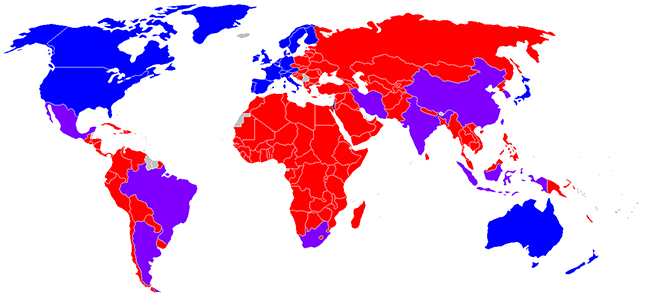As Exports Grow, Georgia Manufacturing is Subject to the Whims of Trade Agreements
As exports play an increasingly important role in Georgia’s economy, some in the state’s business community are concerned about President Donald Trump’s stated intention to renegotiate the North American Free Trade Agreement (NAFTA). Enacted in 1994, NAFTA removed trade barriers between Canada, Mexico, and the United States. Along with other measures, the agreement eliminated tariffs on most U.S.-Mexican imports and exports and removed non-tariff trade barriers between the U.S. and Canada.
Economists tend to agree that NAFTA has benefited the U.S. economy, but some maintain that the agreement has harmed workers in industries subject to trade competition. Most market participants concur that NAFTA could be updated to incorporate e-commerce, cybersecurity, and other factors shaping today’s market.
At a recent meeting of the Next Generation Manufacturing organization, a panel of representatives from Georgia manufacturing companies expressed mixed opinions on the prospect of renegotiating NAFTA. Boxercraft, an online clothing store, worries that changes to current trade agreements could make imported clothing—which the company buys and then relabels—more expensive. Evans Tool & Die, meanwhile, believes that renegotiation could help the company, which makes all of its products in the U.S. Evans cannot buy materials at the same prices that offshore companies can, which creates an “unlevel playing field”.
NAECO, which provides electrical contact materials and precision metal parts to manufacturers, reported that exports represent 25 percent of the company’s business. Overall, there is support for the “America first” mindset, contending that “exporting puts the U.S. first.” NAECO has several Mexican customers, though, who are worried about what the changes to NAFTA may bring and have thus slowed the rate of expansion of business with NAECO.
Most of the panelists agreed that NAFTA will benefit American businesses if it helps to slow down China’s expansion in global trade. They hope that more manufacturing can be brought to Georgia, and that innovation—using robotics and other technologies—will help the U.S. to compete with China. They noted that having local manufacturing improves time-to-market, but that more skilled labor is needed.
More Trade Talk
NAFTA is not the only trade agreement that’s in flux. On President Trump’s first day in office, he fulfilled his campaign promise to abandon the Trans-Pacific Partnership (TPP), a proposed pact among 12 countries to strengthen their economic ties by reducing tariffs and encouraging trade. In addition to the U.S., the 12 participants include Japan (the only country to have already ratified the pact), Malaysia, Vietnam, Singapore, Brunei, Australia, New Zealand, Canada, Mexico, Chile, and Peru. U.S. participation is considered to be the main linchpin to the pact’s success. The remaining countries could go ahead on their own, but the TPP would have to be significantly retooled.

Proponents of TPP maintain that it would strengthen the United States’ position in the Asia-Pacific region, where China’s influence is growing. Those opposed, however, say that TPP is a secretive agreement that favors big business and other countries at the expense of American jobs and national sovereignty, notes the BBC.
For the TPP to take effect, at least six countries representing 85 percent of the group’s economic output must ratify the agreement by February 2018. If this 85 percent requirement is to be met, the U.S. must participate.
Some of the 12 participants say that they can forge a new agreement without the U.S. But as the BBC observes, they will have to settle for considerably less than they hoped for if they choose to go forward without the United States.
Only time will tell whether changes to NAFTA and TPP will positively or negatively affect the Georgia manufacturing industry. But the companies participating in Next Generation Manufacturing (NGM), which provides a business forum for industrial companies to exchange ideas and adopt best practices, will surely be watching this issue in the upcoming year. Cresa is proud to be a Platinum sponsor of NGM.



